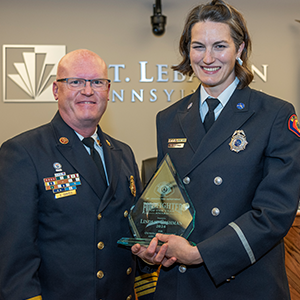Capital plans

Every year, Mt. Lebanon posts a five-year plan for funding capital improvements—big-ticket items that generally cannot be paid for out of the municipality’s yearly operating budget.
A capital item is one that meets any one or more of the following criteria:
A project with a tangible result that will take more than one year to complete.
A nonrecurring (less frequently than five years) purchase which costs more than approximately $25,000. This applies to both new and replacement equipment.
A project which will increase the value of land or buildings substantially.
Other items at the discretion of the manager, with the concurrence of the finance director.
Each department head and staff office chief submits a list of capital projects proposed for the upcoming five-year period. The manager and finance director review and prioritize all of the projects.
A public hearing on the plan is scheduled for the Tuesday, October 10, commission meeting and adoption of the budget is slated for the December 12 meeting.
This year’s plan is available for review on the Mt. Lebanon website under Official Documents. A paper copy is at the Mt. Lebanon Public Library. In addition, the plan is available in an interactive format through Mt. Lebanon’s OpenLebo platform.
Although the plan covers a five-year period, Mt. Lebanon’s Home Rule Charter requires publishing a new one each year, which reflects any change in plans or in community needs. Officials use the budget as a planning document, providing for efficient scheduling of improvements and solid long-range financial planning.
The 2018-2022 plan calls for funding 51 new or continuation projects for infrastructure, facility or equipment that have a gross cost of $53,150,990 over the five-year period.
Some of the most significant projects proposed for 2018 are: $3.85 million for required sanitary sewer work; $2.1 million for street reconstruction; $1,422,720 for Washington Road public space improvements; $1,157,250 for various traffic signal replacements and upgrades and $440,000 for storm sewer management improvements.
The 2018 program also includes $367,840 for replacement of public works equipment, $404,130 for various building improvements and a variety of equipment purchases and other smaller projects.
Since a number of the projects are funded in whole or in part by grants, debt issuance, user fees and contributions, the net tax cost for the 2018-2022 program totals $18,420,680.





